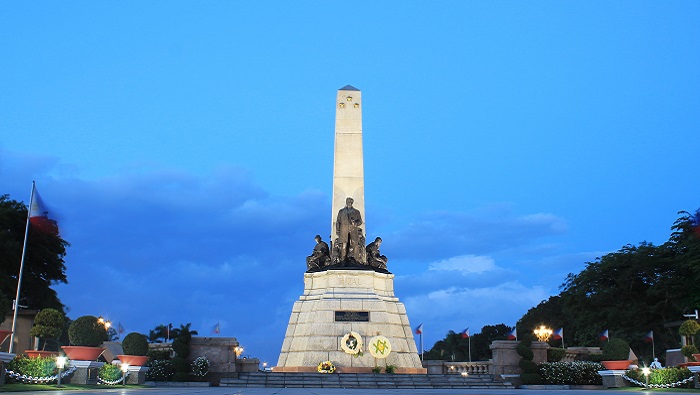
MANILA: Millions of residents of Metro Manila and four nearby provinces were ordered to stay at home starting Tuesday as a stricter lockdown rule was reintroduced in these areas due to a surge of coronavirus disease (COVID-19) infections.
Philippine President Rodrigo Duterte reverted late on Sunday that Metro Manila and the outlying provinces of Laguna, Cavite, Rizal and Bulacan, where many of the fresh COVID-19 cases were recorded, will be under stricter "modified enhanced community quarantine" (MECQ) effective Aug. 4 up to Aug. 18 to try to arrest the galloping spike of the COVID-19.
Public transport will be shut down in these areas and police checkpoints will be set up to limit the movement of people. Only residents with government-issued passes will be allowed to leave home for essential errands such as shopping for basic commodities.
SURGING CASES
The Philippines reported 5,032 confirmed new cases on Sunday, breaking a previous high of 4,963 new cases on Saturday, following 4,063 new cases on Friday and 3,954 new cases on Thursday, according to the Department of Health (DOH).
The DOH said the Philippines has experienced a rapid increase in COVID-19 cases after shifting from the strictest lockdown restrictions enhanced community quarantine (ECQ) to a more relaxed general community quarantine (GCQ) on June 1.
"Many of us tried to return to the way things were. And it has taken its toll on our healthcare system. We must reopen our lives, but it will have to be more cautiously," the DOH said in a statement late Sunday.
According to the DOH, the "modified restrictions" that will be imposed in the next two weeks "will give us the chance to regain the ground we lost in our fight against this deadly invader."
The decision to revert these places under a stricter control came after Duterte convened several members of his cabinet on Sunday night to discuss the appeal of health workers to place the capital under a strict lockdown for two weeks following the spike of cases.
On Saturday, health workers from different medical organizations wrote Duterte a letter to air their sentiments about the COVID-19 situation in the country. The health workers said the country's health care system has been overwhelmed, with hospitals temporary closing to decongest and health workers falling ill.
At least 5,008 health workers have been infected, including 38 deaths.
According to the medical frontliners, the stricter two-week quarantine measures will serve as a "time out" to "recalibrate the government's COVID-19 strategies."
They further stressed in the letter that the country needs to "come up with a consolidated plan" because it is in a "losing battle against COVID-19."
The Philippines saw an uptick in coronavirus infections after quarantine restrictions were loosened in early June to restart the economy.
The DOH said the steady rise of cases is due to "community transmission in areas with poor compliance of minimum health standards" and increase in detection due to the government's expanded testing capacity.
As of Aug. 1, the DOH said the country has 95 COVID-19 laboratories that tested over 1.5 million people so far.
CAUTION ON REOPENING ECONOMY
In mid-March, the Philippines imposed a lockdown in Metro Manila and other high-risk regions to stop the spread of COVID-19. The restriction measures strictly limited the movement of the people and halted economic activities due to the travel bans and temporary closures of schools, transport and businesses.
The prolonged containment that continues up to now forced private businesses to cut production and lay off employees.
The Philippine economy contracted in the first quarter of 2020 due to lower production and weaker demand amid the COVID-19 pandemic. Real gross domestic product (GDP) contracted by 0.2 percent in the first quarter of 2020 from a 6.7-percent and 5.7-percent expansion in the fourth quarter of 2019 and the first quarter of 2019, respectively.
Finance Secretary Carlos Dominguez, head of the government's economic team, has earlier underscored the need to strike a "reasonable balance between safeguarding public health and restarting the economy" as the country continues to grapple with the pandemic and work on a quick economic recovery on the back of a healthcare system better equipped to keep community transmission of the contagion under control.
Dominguez specifically mentioned Metro Manila and the Cavite-Laguna Batangas-Rizal-Quezon (CALABARZON) region that collectively account for 67 percent of the domestic economy.
"It is vital that these regions reopen. The reality is that this virus will not go away until a vaccine is found. In the meantime, we must get back to work while staying safe," Dominguez earlier said.
"This is a tough decision to make but we need to do this. Revving up the economy essentially means raising consumer and investor confidence, which requires some functional level of interaction among groups and individuals," Dominguez added.
On July 27, Duterte said that it is not wise to further reopen the economy at this time, adding that the country is not yet ready to further ease the quarantine restrictions.
"To open up the economy to pre-COVID-19 levels at this time is not an option because whatever good it can produce will only be gobbled up, or be outweighed, by the bad it will generate. Sometimes, haste does make waste," he said in his fifth state of the nation address.
"The recent upsurge of infections when we opened little windows to the resumption of business is proof of that," he said as he spelled out policies that will help the country recover from the economic fallout of the pandemic.
"We are not ready and therefore we will not gamble with the lives and health of the people. Certainly, no one would want to end up on the negative side of the equation. Not me, not us," he further said.
"Victory in the global battle against COVID-19 would take longer than we expect. Everyone's cooperation is needed," Duterte said.